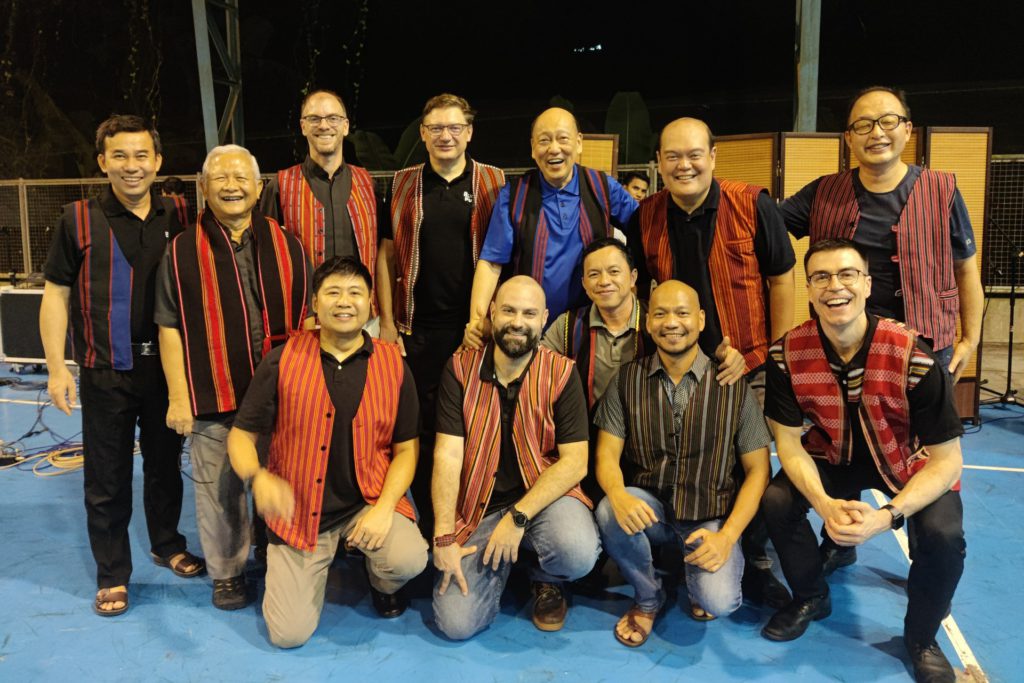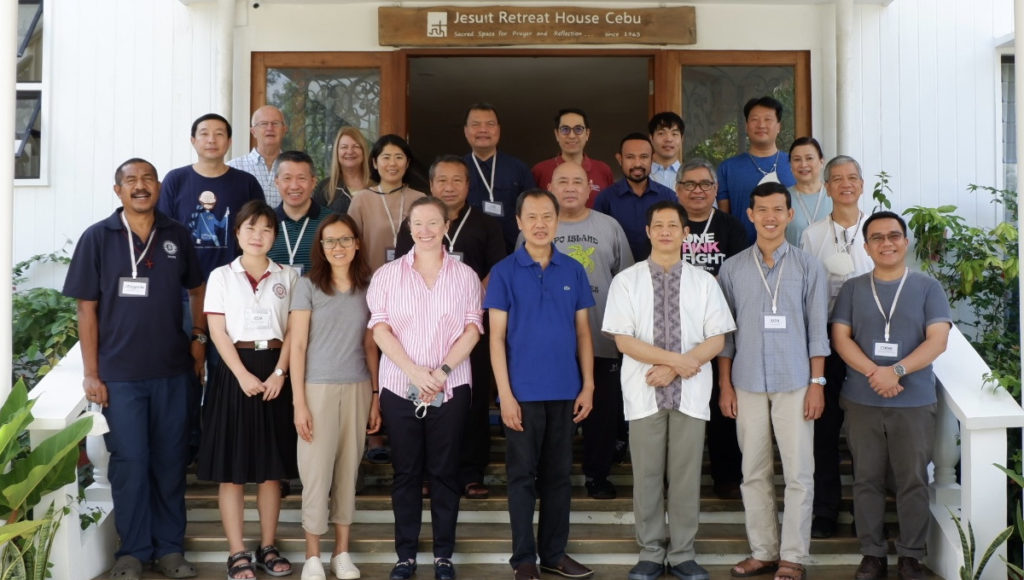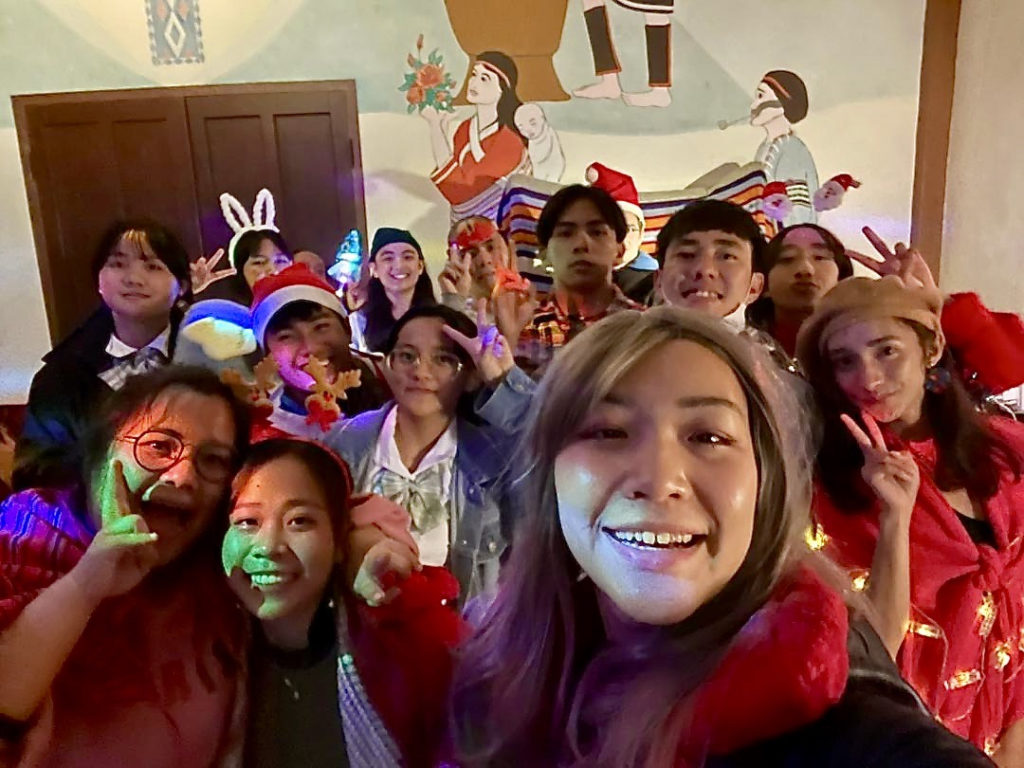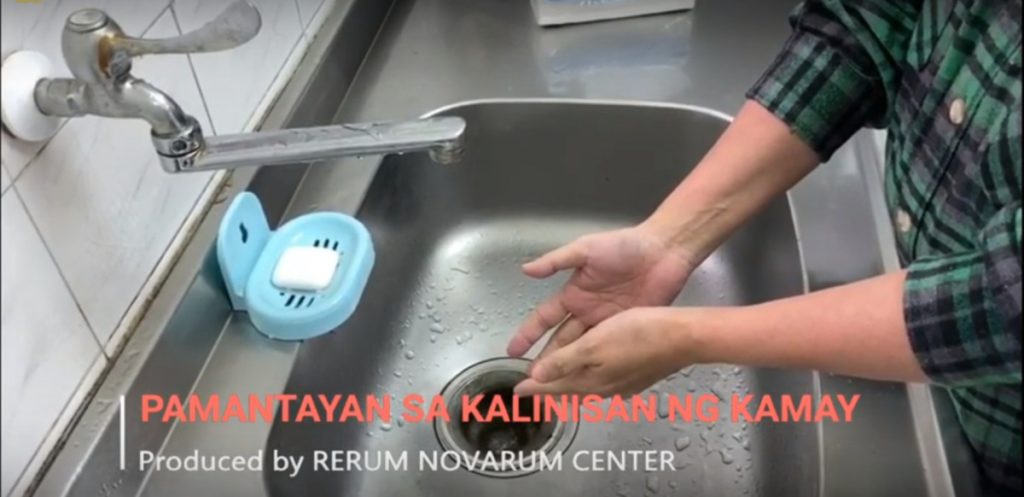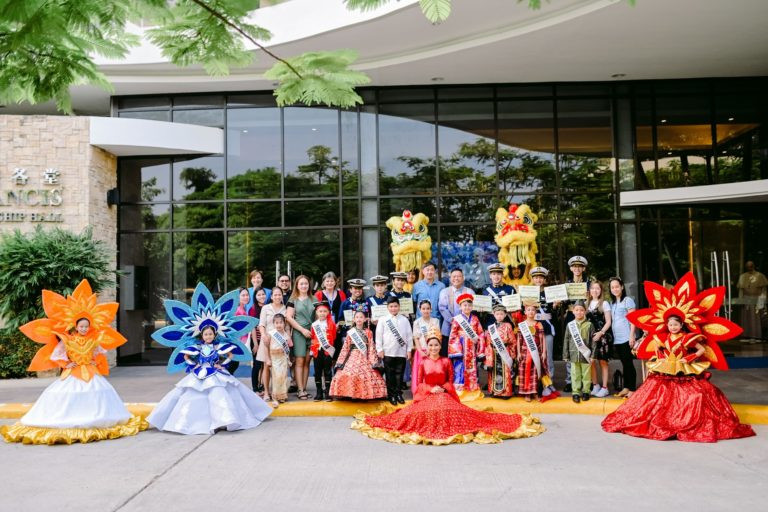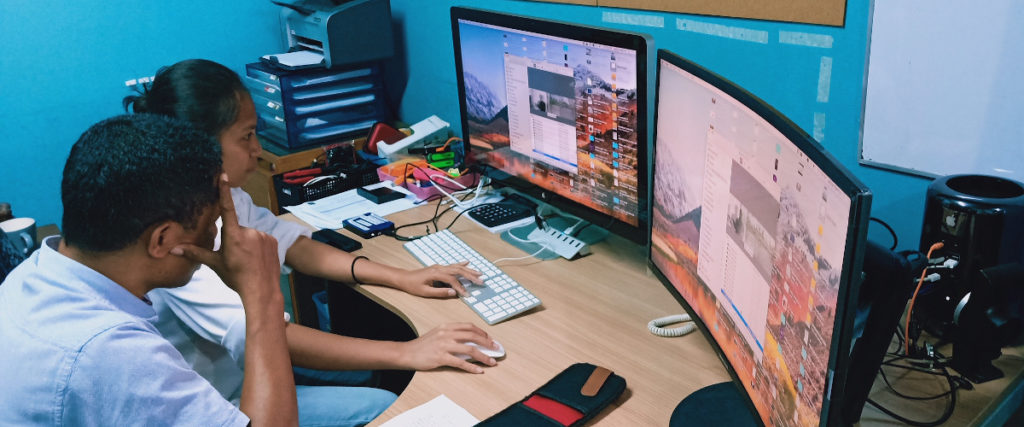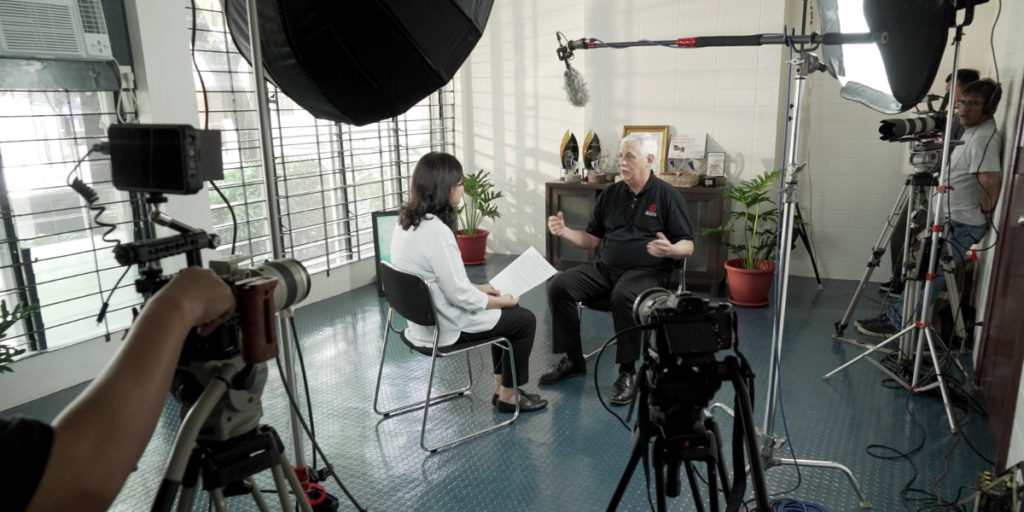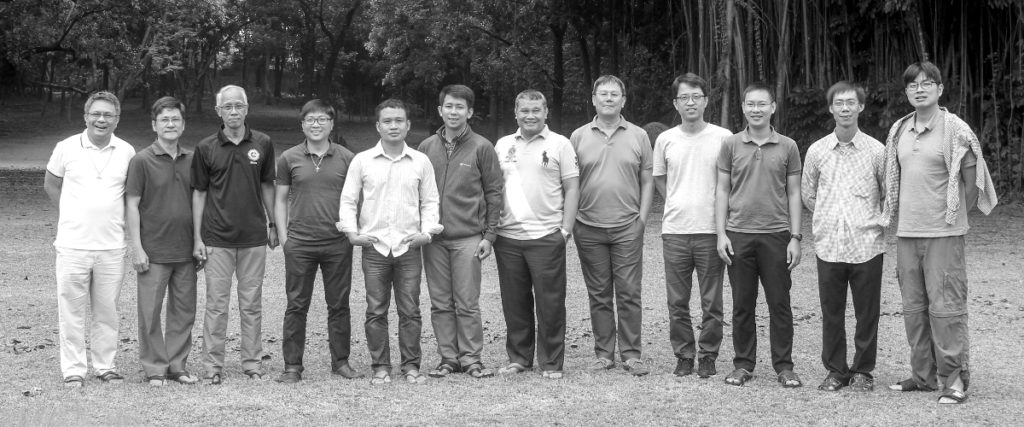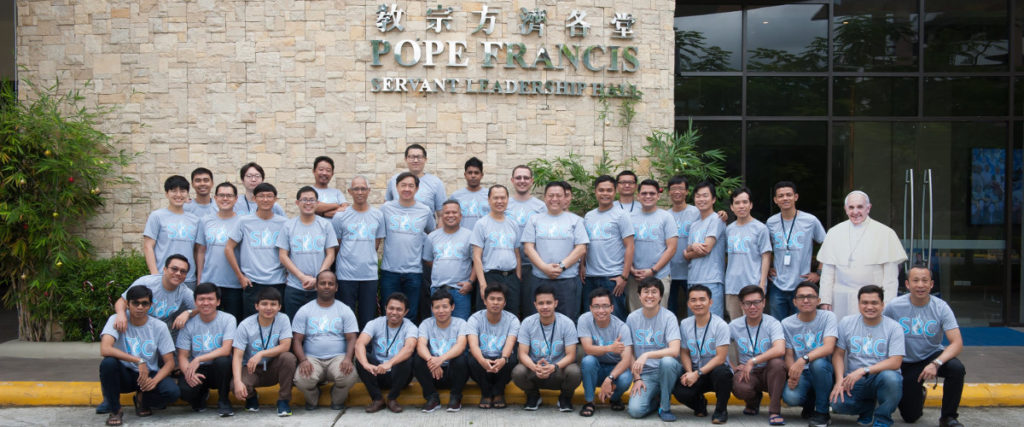The Asia Pacific Tertianship programme, which started in Manila last September, comes to an end on 1 March. A diverse group of Jesuit priests and one brother from the Philippines, Slovenia, Lithuania, Spain, South Korea, the United States, and Vietnam have completed the final period of their formal religious formation Continue reading “A pause to hear the mission calling”
A pause to hear the mission calling
The joy of giving
“You can’t have a long face and be a development officer.” These words from Jesuit Conference of Asia Pacific (JCAP) President Fr Tony Moreno SJ certainly proved Continue reading “The joy of giving”
Celebrating love and diversity among indigenous youth
This pandemic has inevitably changed the way we celebrate. Physical gatherings are risky, potential super spreader events where people might catch the virus. The next best thing is to take the celebration online: Zoom parties are the norm these days. And while a virtual celebration is certainly different, we do what we can to stay connected.
Last December, two indigenous youth groups–one from the southern Philippines (Bukidnon, Davao, and Culion) and another from the small village of Chingchuan in Hsinchu County, Taiwan–met online for a Christmas celebration organised by the Jesuits working in indigenous ministry. Despite the geographical distance, language barriers and technical difficulties, the youthful energy and spirit of sharing pervaded over the gathering. As Conference President Fr Tony Moreno SJ noted in his message to the group, it was “the only network within the Jesuit Conference of Asia Pacific to have a Christmas celebration”. This was a true example of how the joy and enthusiasm of the youth, no matter what obstacles they face in life, cannot be extinguished. As Abegelle, a Food Technology student from Bukidnon State University put it, they are “divided by distance, united by the love and hope of our tribes”.
Fr Ambrosio Flores SJ, coordinator for the Jesuit Companions in Indigenous Ministry (JCIM), and Fr Barry Martinson SJ, a pioneer in this ministry and parish priest in Chingchuan, steered the participants to put together a programme centred on sharing–their identities as indigenous youth, as students, and as talented young people with bright futures ahead. From the livestream in Malaybalay, students from the seven tribes of Bukidnon were resplendent in their multi-coloured traditional clothing. Representatives from the Tagbanua tribe in the island of Culion and the Ateneo Lumad Students Association from Davao also participated.
Meanwhile in Taiwan, the lively group of Ayatal youth–all in high spirits from celebrating their Christmas party in the village church earlier that same evening–were bundled up in winter clothing, some wearing Santa hats and holiday accessories. They all had the chance to introduce themselves to each other. Fr Martinson emphasised using song and dance in the programme, which is universally appealing and easy to translate, as English was not spoken by everyone. The presentations were as diverse as the performers: from indigenous Ayatal songs, to traditional Filipino kundiman (love song) accompanied by acoustic guitar, from original rock ballads with full band to classic Christmas carols–and of course, dancing–the spirit of sharing their talents and expressions of joy for the season were palpable.
JCIM has done over two decades of apostolic work with communities all over Asia Pacific–aside from the Philippines and Taiwan, also Australia, Timor-Leste, Indonesia, Malaysia, Thailand, Vietnam, Laos, Myanmar, and Cambodia–and continue to accompany the youth, with a focus on integral formation. As indigenous youth often have to struggle with things other young people take for granted and face obstacles like poverty, discrimination, and maintaining their indigenous identity, it is important to accompany and encourage them and provide opportunities for growth.
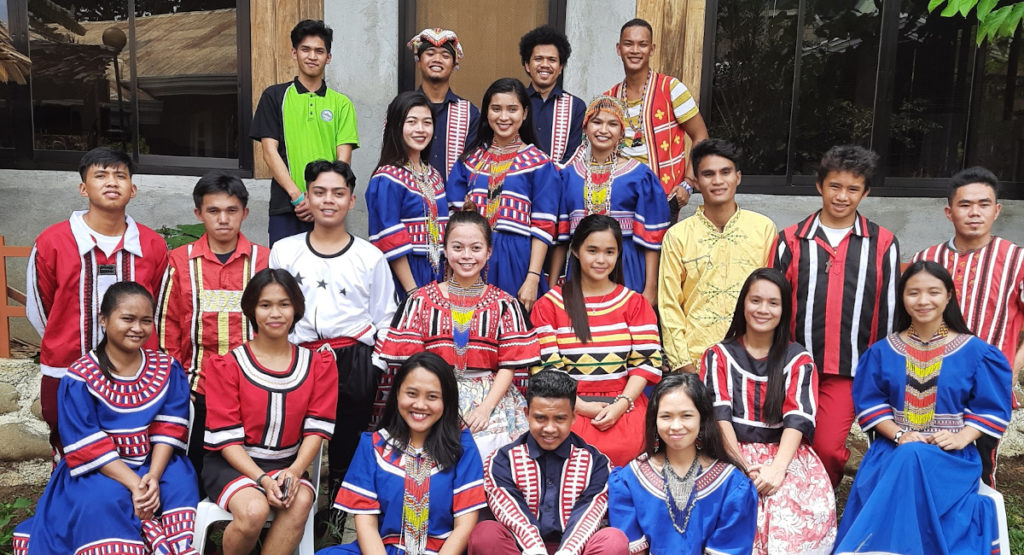
In Bukidnon, the Kapawa hu Paglaum College Scholarship and Formation Programme supports indigenous students as they strive for “self-governance and empowerment, and political, social, economic, and religious inclusion through accompaniment”.
In Chingchuan, while the youth all have the opportunity and resources to complete their education, they are also exposed to the arts through the artistic centres in the village, including the indigenously-designed primary school, a forest arts and crafts village, and the Catholic Church with its mosaics, murals, and stained glass. Thus equipped, they now have to find a way to “advance in society while sustaining and developing their own distinctive culture, to keep their faith in the face of a materialistic society, to preserve their characteristic warmth and hospitality with increasing tourism and opportunities to make money, to find meaning in life when so much has been given to them.” Today, Fr Martinson says, the Ayatal youth “are proud to be what they are. They have come a long way, and it has not been without struggle.”
The gifts from the JCIM online gathering were not in the form of material things. But the participants took home insights with far greater value. “The Christmas encounter made me believe that there is still a thriving fervour of love within the indigenous youth towards one’s tribe, one’s community,” shared Ereca, an agriculture student from the Manobo tribe. Needheart, a sociology major from Bukidnon State University, said: “Sharing with the indigenous youth across Asia Pacific is one of the most memorable moments for me. It reminded me of God’s love for us that is undeniably unending and big.”
If you would like to help the students through the Kapawa hu Paglaum College Scholarship and Formation Programme, please visit this link for more information.
EPIDEMIC PREVENTION – ZERO VULNERABILITY
PROPER HAND WASHING INSTRUCTIONAL VIDEOS ~ MULTI-LANGUAGE VERSION
The recent epidemic situation of the new Coronavirus (COVID19) is getting more and more serious. In order to promote the key measures of epidemic prevention, #Rerum Novarum Center has produced Proper Hand Washing Instructional Videos in Indonesian, Vietnamese and Filipino. We hope that migrant workers from the different countries will protect and manage their own health through the Proper Hand Washing method, which is the best protective measure at this stage.
Ignatian educators “go back” to high school
On the morning of September 19, the junior and senior high schools of Sacred Heart School-Ateneo de Cebu in the Philippines opened their doors to welcome 50 Ignatian educators from Asia Pacific into their classrooms. They were participants in the second Jesuit Conference of Asia Pacific (JCAP) workshop on the Principle and Foundation of Jesuit Education. They came from Timor-Leste, Hong Kong, Indonesia, Macau, Taiwan, Pakistan and the Philippines.
The activity, called Student Accompaniment Program, is a concrete response to the Universal Society’s call to “accompany the youth in the creation of a hope-filled future”. Moreover, true to the spirit of Ignatian Pedagogy, it was also an exercise in empathy with the participants immersing themselves in the students’ context. All through that morning they were led by the high school students assigned to guide them through a typical day in their high school life.
The Student Accompaniment Program was, for many participants, the highlight of the workshop. It was a rare opportunity for these educators to actually sit through the classes we offer our students.

“I became a student again,” shared Ling Yun So from Hong Kong. “I experienced that long lost feeling of being a student.”
“It’s already been 30 years [since high school] and I became very curious and actually a little bit scared and worried because I found out this morning that there were quizzes and I didn’t know if I was ready to take them!” said Maricar Kristin Panganiban from the Philippines.
The participants were grateful for the meaningful insights they obtained as a result of the activity. Some even considered the experience an eye-opener as an educator even if their contexts may differ from Sacred Heart School-Ateneo de Cebu in some way.
Nevertheless, thanks to our gracious hosts led by the School President, Fr Manny Uy SJ, the workshop treated the participants with a number of other highlights. For one, the opening ceremony was like no other we have ever had in our previous JCAP workshops. We were welcomed with both a joyfully boisterous lion dance and a beautifully moving Sinulog prayer–a wonderful mix of Chinese and Filipino cultures to symbolise the unique mission of our host school.
As in all of our workshops, the participants did a lot of work, not only listening to the inputs of the facilitators, but sharing their personal experiences and insights with their colleagues from other countries.
The workshop was designed to give the participating educators an opportunity to reflect on the history and tradition of Jesuit education, its characteristics, and most particularly, its goal as captured by the so-called 4 Cs (Competence, Conscience, Compassion and Commitment).
But just as important as the formal sessions were the informal conversations among the participants during the breaks and over the meals. Thanks to the schools’ benefactors, we had some pretty special meals as well, starting with the welcome dinner, when we celebrated the birthday of the new Education Delegate for the Chinese Province, Fr Clement Tsui SJ.
As always, each day of the workshop was capped with a Eucharistic Celebration to thank the Lord for the abundance of graces received. Each day we made sure to pray especially for the school community that hosted our workshop and the generous benefactors who made the experience extra special.
What made this workshop very special, however, is that upon the approval of the Chinese Provincial, Fr Stephen Chow SJ, we welcomed a new affiliate school to our network, the Marymount Primary and Secondary Schools in Hong Kong. Also, for the first time, our colleagues from Pakistan requested to join our workshop and their request was graciously granted by JCAP President, Fr Tony Moreno SJ.
At the close of the workshop, the participants were requested to share whatever they learned with their colleagues as they returned to their respective schools. They were also strongly encouraged to keep in touch with one another and to feel free to consult with–and offer assistance to–their colleagues in Asia Pacific. After all, they were able to create many unforgettable memories these last few days and were certainly able to establish new friendships among themselves–and with the students. [JCAP Education]
 Fr Johnny C Go SJ is the Secretary for Pre-Secondary and Secondary Education of the Jesuit Conference of Asia Pacific. He is also the Assistant for Mission and Identity of the International Commission on the Apostolate of Jesuit Education, an advisory council to the Secretariat for Education in the Jesuit curia in Rome to ensure quality service in the field of education.
Fr Johnny C Go SJ is the Secretary for Pre-Secondary and Secondary Education of the Jesuit Conference of Asia Pacific. He is also the Assistant for Mission and Identity of the International Commission on the Apostolate of Jesuit Education, an advisory council to the Secretariat for Education in the Jesuit curia in Rome to ensure quality service in the field of education.
Watch this video to know what the Ignatian educators have to say about their experience in the Student Accompaniment Program. This video was created by No Budget Productions composed of high school students of Sacred Heart School-Ateneo de Cebu.
Anthology of homilies by Fr Arnel Aquino SJ to benefit young Jesuits in Arrupe International Residence
Jesuit Communications (JesCom) Philippines has published an anthology of the homilies of Fr Arnel Aquino SJ entitled, Empty boats…full nets. All proceeds of the book will go toward the education and training of Jesuit scholastics in Arrupe International Residence, an international work of the Jesuit Conference of Asia Pacific (JCAP).
The book contains 58 homilies arranged by evangelist and a few of them are homilies on feast days and vows. All of them draw from Fr Aquino’s life experiences throughout his nearly 30-year journey with the Society of Jesus as a musician, theologian and priest. The book aims to communicate the poignant message of a deep, personal encounter of Christ himself.
“Fr Arnel Aquino SJ demonstrates the point on preaching raised by Pope Francis… [He] elegantly writes these reflections about Jesus, faith, life and human experience using Gospel passages ‘to encourage the practice of good,’” writes JCAP Fr Tony Moreno SJ in his foreword to the book.
Fr Aquino was initially hesitant to publish a book of his homilies but finally agreed because of the cause behind its publication.
“My friends had been urging me to compile them into a book. In my head, homilies are for free. Then, we found a worthy cause for the sales of the book,” Fr Aquino, who is part of the Arrupe International Residence community, told JesCom Philippines.
The book’s sales will benefit young Jesuits from Asia Pacific, South Asia, Africa and Europe studying at Loyola School of Theology and Ateneo de Manila University, a good number of whom are on scholarship.
“It is often said that the future of the Church comes from Asia and Africa where there is growth in vocation, emerging leadership and vibrancy in the way the faith is lived,” writes Fr Moreno. “Readers of this anthology will be part of the mission to assist and accompany future church ministries in this part of the globe.”
Empty boats…full nets: an anthology of homilies is available on Jescom Philippines and at the Tanging Yaman store located on the campus of Ateneo de Manila University.
JesCom Philippines leads workshop for CPA-Timor Leste
Jesuit Communications Foundation (JesCom), the media arm of the Philippine Province of the Society of Jesus, conducted a training workshop on documentary scriptwriting and financial management for the staff of Casa de Produção Audiovisual (CPA), the Jesuit film production studio in Timor-Leste.
Executive Director Fr Emmanuel Alfonso SJ said that an integral part of JesCom Philippines’ responsibility as Secretariat for Social Communications of the Jesuit Conference of Asia Pacific (JCAP) is to assist its affiliate organisations in the conference.
The five-day workshop, held from August 12 to 16 at Ateneo de Manila University, took CPA’s new producers, graphic illustrators and treasurer, headed by Scholastic Rui Nunes Muakandala SJ, through the ropes of documentary scriptwriting, financial management, Quickbooks and Adobe Premier operations.
JesCom Finance and Administrative Manager Jennifer Chua said that a step-by-step approach proved beneficial in helping the East Timorese staff improve their working knowledge of accounting and finance, especially the use of relevant software.
“I gave them an overview of financial management, its importance, understanding accounts, financial planning, financial monitoring and internal controls. I was able to share with them some of the best practices that they can apply to their organisation,” said Chua.
“It was important to show them one by one all the features and functions of Quickbooks and how they are applicable to their day-to-day operations,” she added.
Meanwhile, JesCom Creative Director Pauline Mangilog-Saltarin’s objective was to teach the participants scriptwriting techniques for documentaries, which the CPA staff could immediately put to use in writing and producing their own films during their Manila visit, and upon returning home.
“The staff were all very receptive. I could tell that they really wanted to learn and expand their knowledge in scriptwriting and production,” said Mangilog-Saltarin.
The opportunity to help in the development and growth of its partner organisations in the JesCom network in Asia Pacific reflects JesCom Philippines’ leadership and commitment to its ministry of media evangelisation.
“For the past few years JesCom Philippines has been at the forefront of training JCAP members,” shared Mangilog-Saltarin. “I think sharing our knowledge and best practices to other countries is indicative of how JesCom, as a Jesuit institution, is fulfilling its mandate and vision.”
By Anthony Perez, JesCom Philippines
Interview with the General
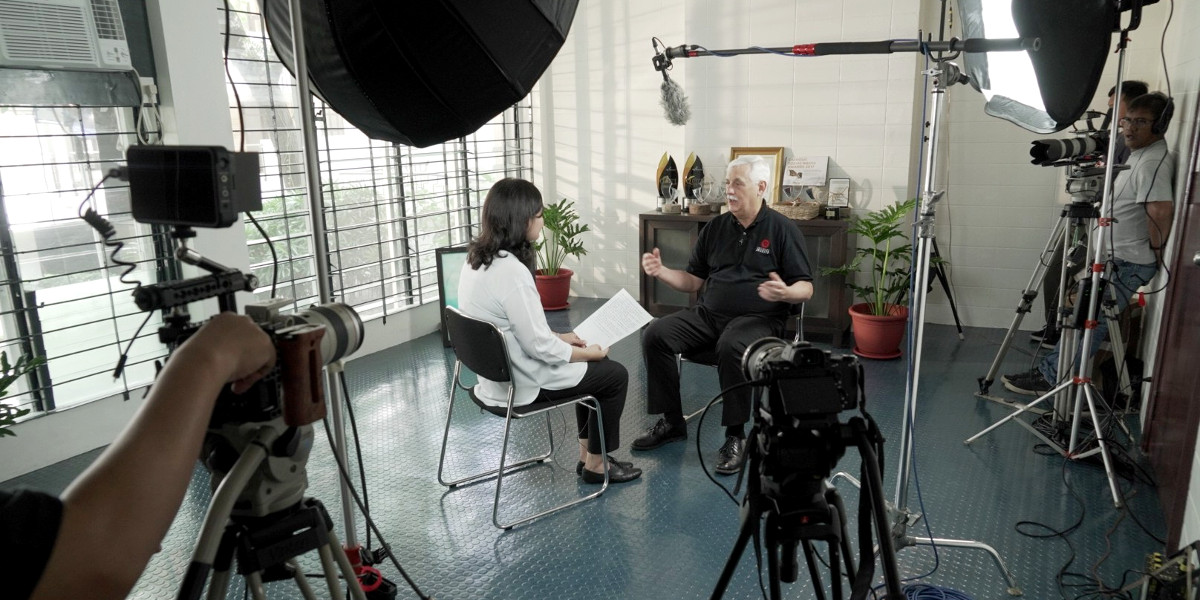
Superior General of the Society of Jesus Fr Arturo Sosa spent the first two weeks of December visiting the Vietnamese Province and the Philippine Province. It was his second trip to Asia Pacific; in 2017 he went to Cambodia, Indonesia and Singapore. From December 1 to 15, we at the JCAP Communications desk in Manila monitored the progress of Fr General’s trip with the help of the excellent teams of Jesuit Communications Vietnam and Jesuit Communications Philippines.
To prepare for the visit, there was a lot of coordination with Br Stephen Tran Thien Kinh SJ, who was sending us complete and up-to-date coverage of the highlights from the Vietnam leg that it almost felt like we were there.
Meanwhile, in the Philippines, we worked with Fr Nono Alfonso SJ, Executive Director of Jescom Philippines and JCAP Coordinator for Social Communications. During a meeting, I asked if I could go to Kalookan City with the Jescom team to cover the visit to Sacred Heart mission station. So I tagged along with the production staff headed by Ernestine Tamana, while Rev Harry Setianto Suyarno SJ from Arrupe International Residence took many incredible shots of that memorable day in Dagat-Dagatan.
When Fr Nono asked if I could interview Fr General, I immediately agreed. Then I began making copious notes. What questions to ask Fr General? I needed guidance, so the input from Fr Nono–who is a pro at these things–was helpful, also the advice and suggestions of Fr Tony Moreno, JCAP President, Fr Socius Eric Velandria and Vanessa Gorra, our very own Communications Assistant. I listened to Fr General’s homilies and speeches throughout the trip, and attended the Mass he celebrated on the Second Sunday of Advent and found myself infinitely consoled by his message of hope.
I had the opportunity to interview him on December 15, his last day in Manila, only hours before he would leave for the airport to fly back to Rome. I had a list of 10 questions handwritten in green ink on a sheet of paper. We sat down at precisely half past nine and at the beginning I was a bit nervous. But I found Fr General to be (as Fr Tony put it) muy simpatico. We spoke about his trip to the two provinces and the challenges and needs here in Asia Pacific. He shared: “Really it’s also a moment for me of consolation to find the people and it’s an opportunity to share the same vocation in so diverse a context.”
I am filled with gratitude for all the help and support we got from all over to cover this visit, and for such a privileged moment with Fr General Arturo Sosa.
To be formators rooted in the spirit of St Ignatius
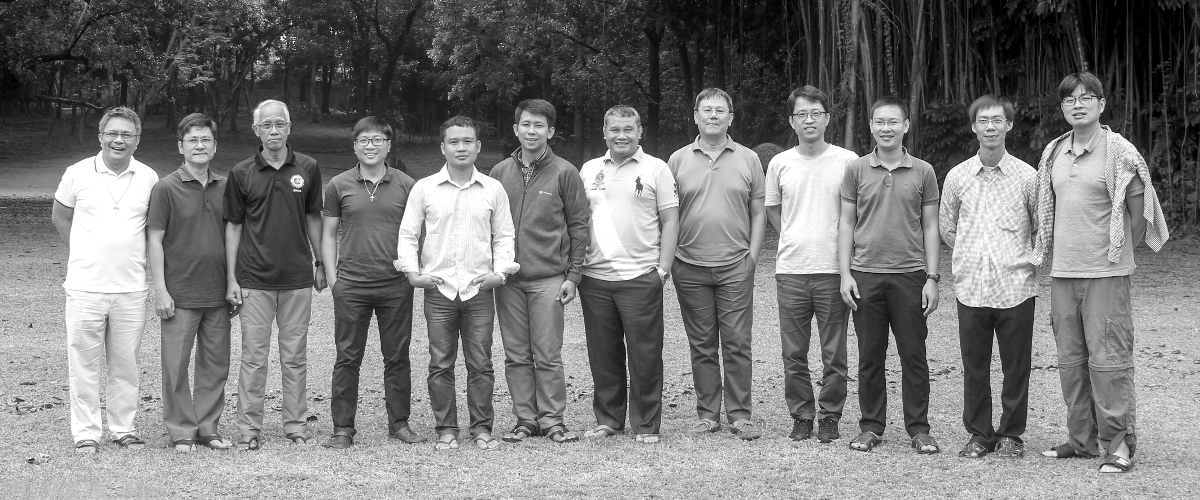
Ignatian accompaniment and spiritual direction were at the heart of the second module of the Jesuit Conference of Asia Pacific (JCAP) Formation for Formators workshop held recently in the Philippines. A basic rhythm of prayerful reflection, sharing of personal experiences and lectures helped the participants gain a better understanding of their own experience with God and learn to help others do the same through Ignatian accompaniment.
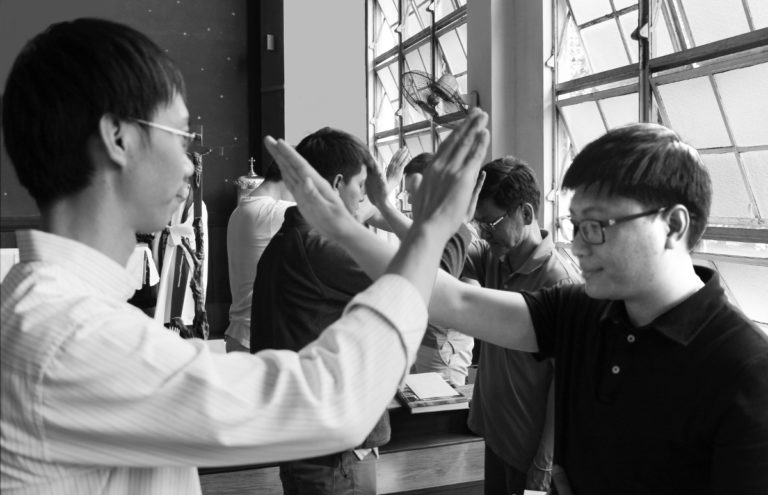
The Center for Ignatian Spirituality (CIS) facilitated the workshop held from August 19 to August 29 at the beautiful and quiet Sacred Heart Novitiate and Retreat Center in Manila. The 11 participants came from Vietnam, Thailand, Korea, Indonesia, Singapore, Australia and China. They were accompanied throughout the workshop by JCAP Formation Delegate Fr Riyo Mursanto SJ and CIS Executive Director Fr Silvino Borres Jr SJ. JCAP President Fr Antonio Moreno SJ was also present during the first day to welcome them.
The variety of their backgrounds proved to be an enriching experience for the participants, who were nonetheless brought together by their unique Jesuit charism rooted in the life of their founder, St Ignatius of Loyola. The opening session focussed on “How God accompanied St Ignatius”. CIS Formation Director Fr Noel Vasquez SJ traced Ignatius’ inward journey towards God and then described how this inward journey later turned outwards as St Ignatius became motivated by a passion to “help souls”. He invited the participants to personally relate to St Ignatius’ experience by reflecting on how God had led them inwardly and outwardly to Him. Using the words of Etty Hillesum, Fr Vasquez reminded them to constantly reflect on how God is leading them: “If you want to teach others how to live, you must take yourself in hand. You have to go on taking stock of yourself.”
The second day was devoted to spiritual direction. Fr Borres gave a brief review of the traditions in Church history, the definition of spiritual direction and how it differs from other types of accompaniment like counselling, and the qualities of a spiritual director. In the next few days, the discussions dealt with how to conduct spiritual direction. Eva Galvey, co-founder of the Emmaus Center for Psycho-Spiritual Formation, defined what a religious experience is and then gave the criteria for evaluating whether a religious experience is authentic or not. Recognising an authentic relgious experience is crucial because “spiritual direction at its core is about helping a person to recognise an experience of God… and to respond to it more fully,” she said. She also pointed out various blocks and resistances in spiritual direction.
Training consultant Monchito Mossesgeld shared on basic helper skills, such as attentive listening, empathic responding and probing to further help the participants in their ministry of spiritual direction. His interactive approach and the numerous case studies he presented elicited active discussion in the group.
Fr Ramon Bautista SJ, Asia Pacific tertianship co-instructor, gave a short yet insightful lecture on the discernment of spirits and election, quoting scriptural as well as living examples. The same topic was expanded by Fr Borres who reminded the participants of the difference between feelings and movements regarding spiritual consolations and desolations. Several cases of discernment were presented and discussed after that.
Finally, the workshop dealt with ethical guidelines and supervision in spiritual direction given by Center for Family Ministries President Fr James Gascon SJ and CIS Associate Tina Mossesgeld, respectively. Fr Gascon admonished the young Jesuit priests of the possible danger of blurring the boundary of confession and spiritual direction. “You may be automatically excommunicated due to the breaking of the sacramental seal,” he cautioned.
The nine-day workshop might have been too short for a topic as serious and broad as spiritual direction, but it was undoubtedly very fruitful. “It really helped me a lot, ” said one of the participants, “especially in understanding the qualities required of a spiritual director and the importance of spiritual experiences. Moreover, the skillls of emphatic responding, probing and managing resistances will certainly help me to improve as formator.” As Galvey commented, these are not just skills that are easy to use, “you have to practise until they become your second nature”.
Jesuits in formation re-imagine Jesuit education
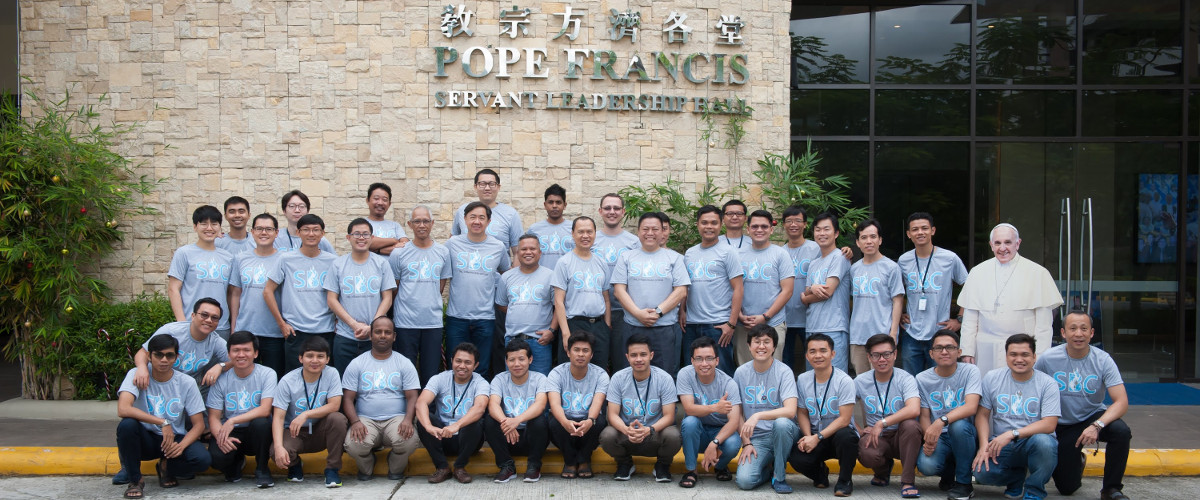
“How can we innovate our education ministry to respond to the 21st century, while remaining faithful to our tradition?” This was the big question that 33 scholastics and brothers in formation from 11 countries in Asia Pacific tried to address during the Scholastics and Brothers Circle workshop held in Cebu, Philippines from December 18 to 28.
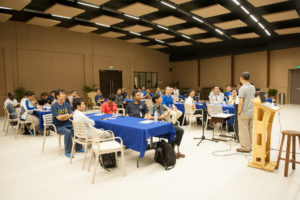 The participants were taken through the history and tradition of Jesuit education, including the 4 Cs (Competence, Conscience, Compassion and Commitment), and even tried using Ignatian Pedagogy as a design process. Technology was embedded in the workshop to give them an experience of learning in a technology-integrated environment.
The participants were taken through the history and tradition of Jesuit education, including the 4 Cs (Competence, Conscience, Compassion and Commitment), and even tried using Ignatian Pedagogy as a design process. Technology was embedded in the workshop to give them an experience of learning in a technology-integrated environment.
JCAP President Fr Antonio Moreno SJ was also with them for part of the workshop. He told them: “In the last General Congregation, Pope Francis asked us to discern. Therefore we cannot rest content in the way we run our schools and the way we do things in the classroom and even in management. There is this push to re-imagine, to be more creative in the way we run our institutions, our schools. We hope this will redound to the benefit of our future Jesuits.”
Fr Moreno spent an evening dialoguing with the participants enabling the young Jesuits in formation to see beyond their own regions and provinces. He also participated in a panel discussion along with JCAP Formation Delegate Fr Riyo Mursanto SJ and Sacred Heart School-Ateneo de Cebu President Fr Manny Uy SJ. Fr Joseph Haw SJ, President of Ateneo de Iloilo-Sta Maria Catholic School also joined the discussion via Skype. The accumulated wisdom from their collective years of experience both enlightened and inspired the participants.
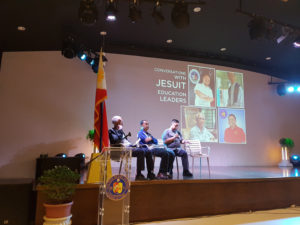 “It’s been a wonderful experience,” shared Scholastic Joshua Choong SJ from Australia. “I hope that in the future I will be able to animate teachers and students in the Ignatian pedagogy.”
“It’s been a wonderful experience,” shared Scholastic Joshua Choong SJ from Australia. “I hope that in the future I will be able to animate teachers and students in the Ignatian pedagogy.”
Scholastic Sarayuth Konsupap SJ from Thailand shared the same aspiration. “I learnt many things about Jesuit education and I hope that in the future I could apply them to the new Jesuit school in Thailand.”
The workshop was also an opportunity for the participants to meet and make friends with Jesuits from the different provinces and regions.
Fr Mursanto pointed out that one of the six dynamics in JCAP’s “Profile of a Formed Jesuit” is conversation.
“Conversation is really in practice. They meet from different cultures, different countries and they share with each other. With that they are able to build a solid foundation to be able to collaborate in the future,” he said.
Scholastic Bernard Lodewicus SJ from South Africa who is doing his regency in Taiwan affirmed this, saying that it was a wonderful opportunity to get to know the scholastics from the different regions in Asia Pacific. “I think we’ve all had a wonderful time,” he said. “What we’ve got here we will go and implement in our various ministries not just in education.”

